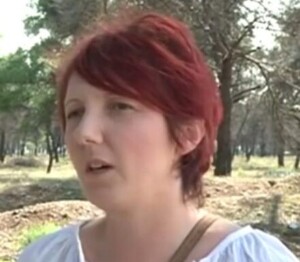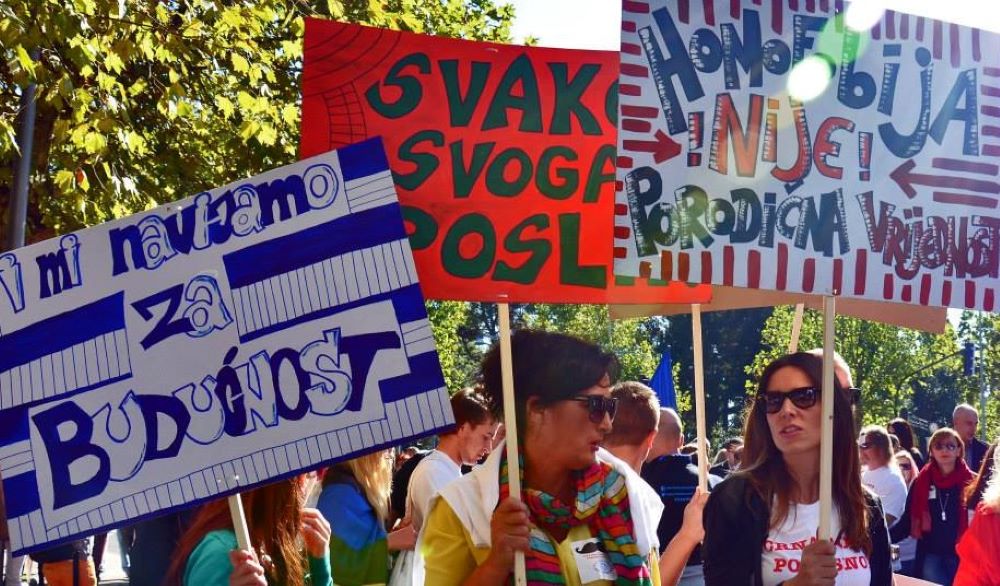It’s not easy to finally accept that your child is LGBT. And then, I realized that the best thing I could do for my child was support her and be by her side.

Damira Kalac
‘It bothers me that they will have to be strong, stronger than they need to be for their age, and that they will have to essentially fight against the world for very simple things like finding love or a job … The hardest thing for me is dealing with the fact that they can get hurt any time when they decide to just live their life and their identity honestly, yet I know that it is better for them to live just like that because it is the only way they will be the happiest’, a parent we spoke to told us.
We had a hard time reaching him. These things are still reluctantly, and mostly anonymously, discussed in Montenegro. I remembered the statement of Djordjina Gvozdenović from Podgorica, from 2017. She then said that Montenegro is a homophobic environment. Djordjina is one of two mothers who publicly supported their daughters, members of the LGBT population, at the Pride Parade a year prior. Today, Djordjina was the only one who agreed to speak publicly about the sexual orientation of her children. I really wanted it to be someone else, and not ask Djordjina, simply to avoid the situation which happens to journalists when they have reliable guests for certain topics, and then they happen to ask precisely them.
‘None of the parents we work with are willing to talk about it’, one LGBT activist and long time human rights activist told me briefly.
“It can be done anonymously,” I said to another organization.
I went back to Đorđina. Then, there was also J, whose sister publicly declared as a lesbian. She prefers to talk about everything anonymously.
And just when I thought that was it, another parental response arrived. Anonymous.
Recalling the days when she realized her sister was gay, J says it was in high school, and that she confirmed her suspicions by having a peak through her sister’s diary.
‘It was a time when people never talked about the gay population, and it was something highly shameful. Although T was always masculine, so we attributed it to that. I would probably to this day believe that she is not a lesbian and that all her ‘friends’ are really her friends. I read it in her diary. That’s how I found out. At first it was a disgrace. We hid from everyone. And when someone asked me, I pretended it wasn’t true’, says J.
She was also affected by the comments about her sister, but they, she says, happened mostly in the virtual space.
‘It really hurt me when I read horrible comments on her Facebook photos. I mostly didn’t encounter this in person. It may be because people only have the courage to spit on others on social media, or simply because my environment reacts to differences this way’, she says.
J is more relaxed today when it comes to her sister’s sexual orientation.
‘I even openly say that my sister is gay, and my environment has accepted that, even the more conservative side of the family, it seems.
Djordjina has long been recognized as one of the two mothers who support their children by participating in Pride.
When she talks about the days when she realized that her daughter was LGBT, she says that there is no singular feeling which accompanies this realisation.
‘You accept it, and then you start fighting your demons, then accept it again, and hope it’s just a phase in life. A lot of things happen until the final acceptance, it’s not easy’.
And then she realized that the best thing she could do for her child was to support her and be by her side.
When asked if something had changed over the past years, if other parents have been empowered in the meantime, she is not optimistic.
‘On the contrary, both them and the community more generally are currently, in my opinion, in a worse position than a year or two ago’, says Djordjina.
Damira Kalač, journalist, blogger, and civil activist



Leave A Comment